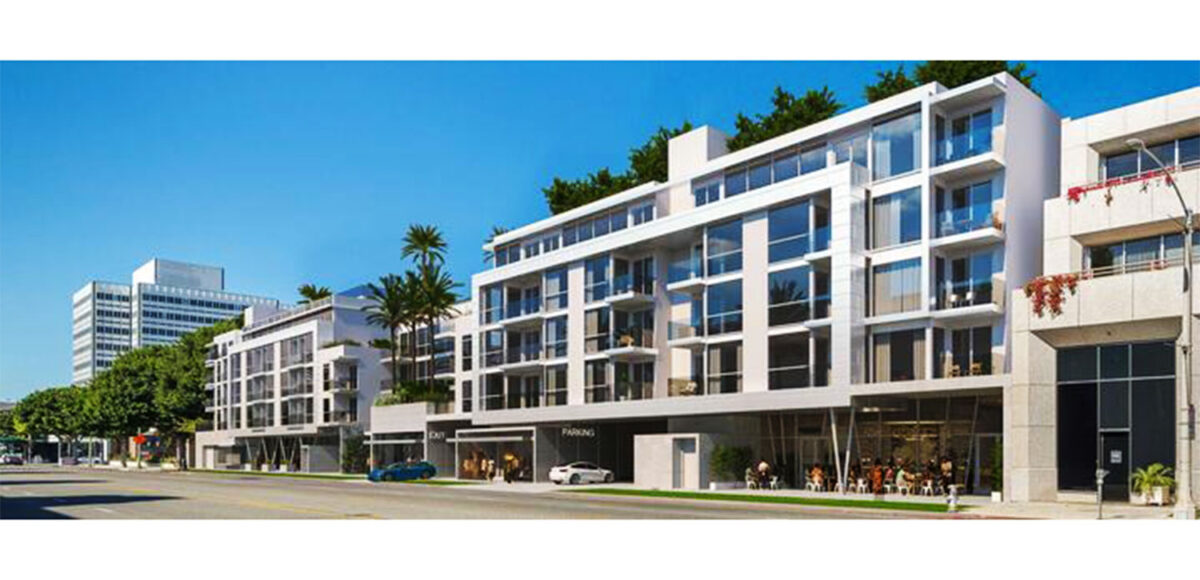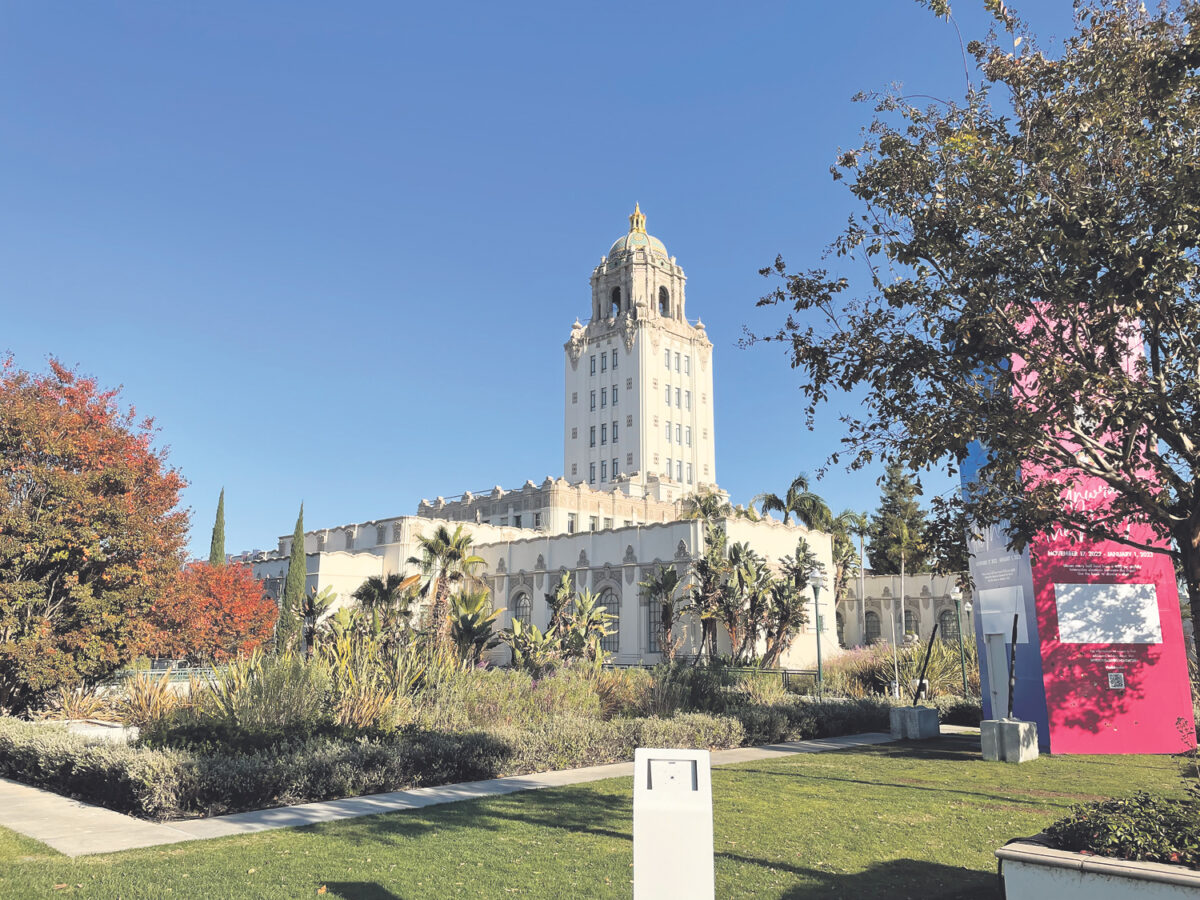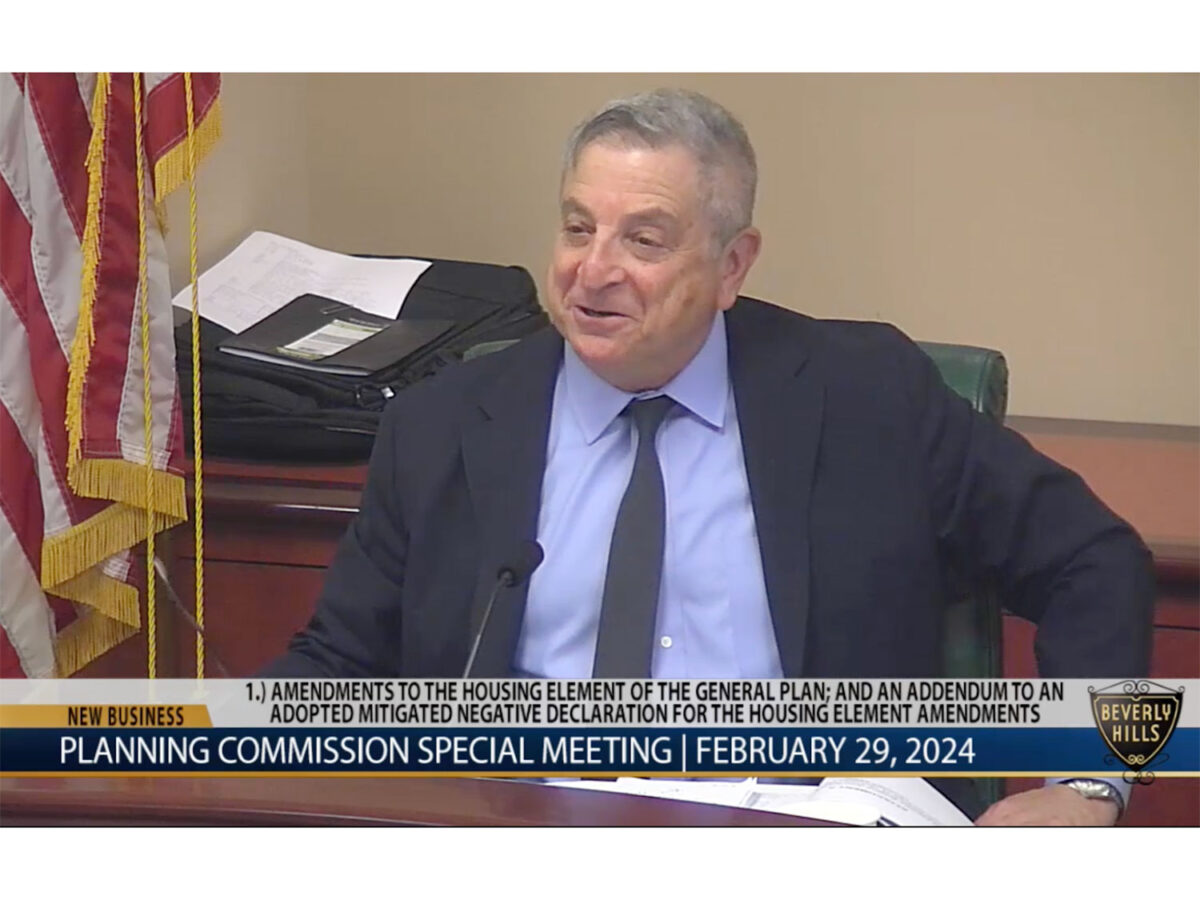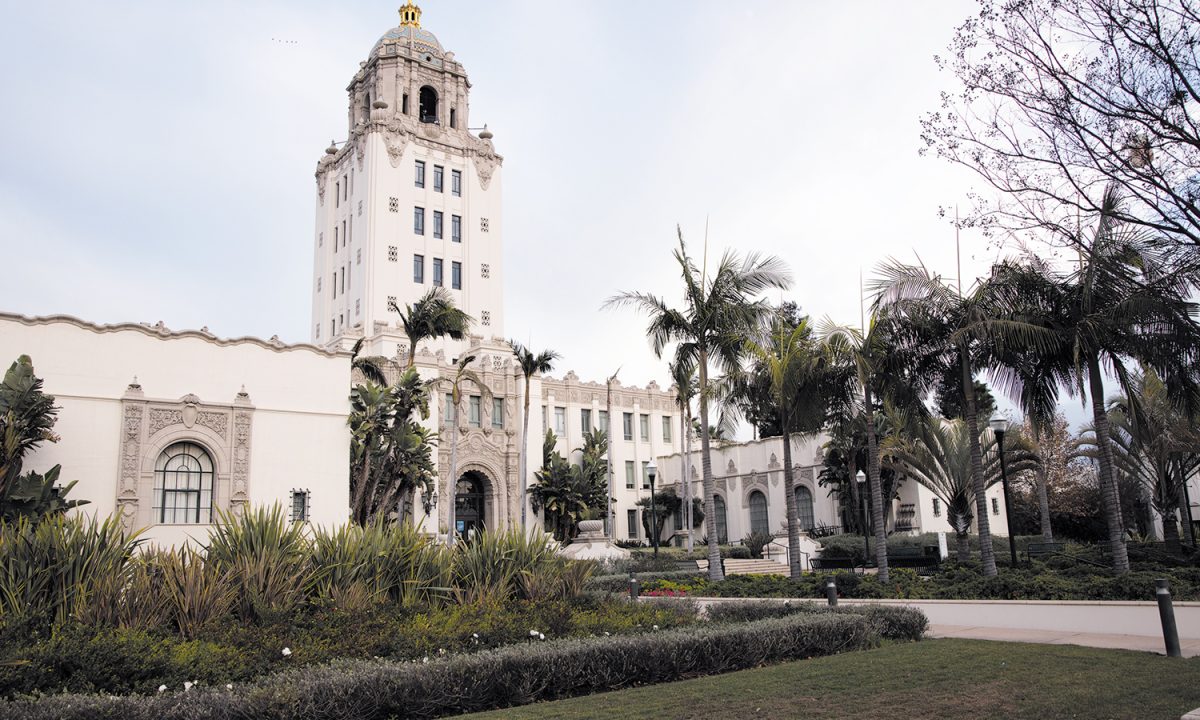An environmental group has filed an appeal against the approval of the 105-unit “Stinking Rose” mixed-use development located at 55 N. La Cienega Drive, arguing that the project should not have received an exemption from the California Environmental Quality Act (CEQA).
Council members unanimously voted this week to consider the appeal during their upcoming Sept. 12 meeting.
The project was approved by the Planning Commission on June 22 and consists of a six-story building with ground floor retail space, 94 market rate apartment units, 11 very low-income apartment units and a three-level subterranean parking lot.
The mixed-use development will replace a surface parking lot and a vacant commercial building that was previously home to the Stinking Rose restaurant. The property is owned by Westland Real Estate Group.
The appeal, along with a $6,694 fee, was filed on July 5 by a group called Supporters Alliance for Environmental Responsibility. This group is funded by the Southern California District Council of Laborers, which represents several regional construction worker unions and has a history of appealing approval of large housing projects and asking for more environmental review. The group filed a similar appeal to the approval of a 108-unit building in downtown Long Beach, which was rejected by Long Beach’s City Council in January 2022.
In the case of the Stinking Rose project, the appellants are claiming that a full CEQA review is needed due to air quality concerns stemming from chemicals that may be contained in the building’s materials. The Planning Commission previously ruled that the project was exempt from CEQA.
The appeal states that the project “will likely expose future residents living at the project to significant impacts related to indoor air quality, and in particular, emissions of the cancer-causing chemical formaldehyde.”
According to the appeal, formaldehyde is present in many composite wood products commonly used in flooring, cabinetry, baseboards, window shades, interior doors, and window and door trims.
Planning Commissioner Peter Ostroff said it is “extraordinarily unlikely” that the appeal will be successful.
“It (the appeal) doesn’t seem to have any merit,” he said. “I believe that the (CEQA exemption) report that was presented to the Planning Commission thoroughly anticipated these issues and on that basis we found the project exempt.”
Regardless of the likelihood of success, the appeal process drags out an already long process for the property owner to redevelop the project site.
The owner first proposed building a four-star hotel on the site in 2016. Over the years, the hotel plans went through several iterations—ranging from seven to nine stories, between 169 to 247 guest rooms, and between 164,645 and 287,384 square feet.
It repeatedly failed to gain city approval as the Planning Commission determined that a hotel of that scale was not an appropriate use for the project site. After the most recent rejection in January 2021, the owner pivoted to a mixed-use concept.
This was allowed under the new mixed-use ordinance that the council passed in November 2020 to encourage more developments that combined residential units and commercial spaces in commercially zoned areas of the city.
So far, the Stinking Rose project is the only mixed-use development to gain city approval since the ordinance was passed. Three additional, yet smaller scale, mixed-use developments are currently making their way through the approval process.
The latest Stinking Rose development was opposed by some residents, not due to environmental concerns, but rather concerns over the density of the project and impact on nearby residences.
Under new state housing regulations, the project was entitled to several density bonuses in exchange for including 11 units reserved for very low-income households. This allowed the property owner to increase the building height from three stories to six and the total number of units from around 70 to 105.
“I think it was appropriately approved,” said Ostroff. “We have got to comply with the law and state law says that they have a right to certain additional entitlements in exchange for providing a certain level of affordable housing.”







